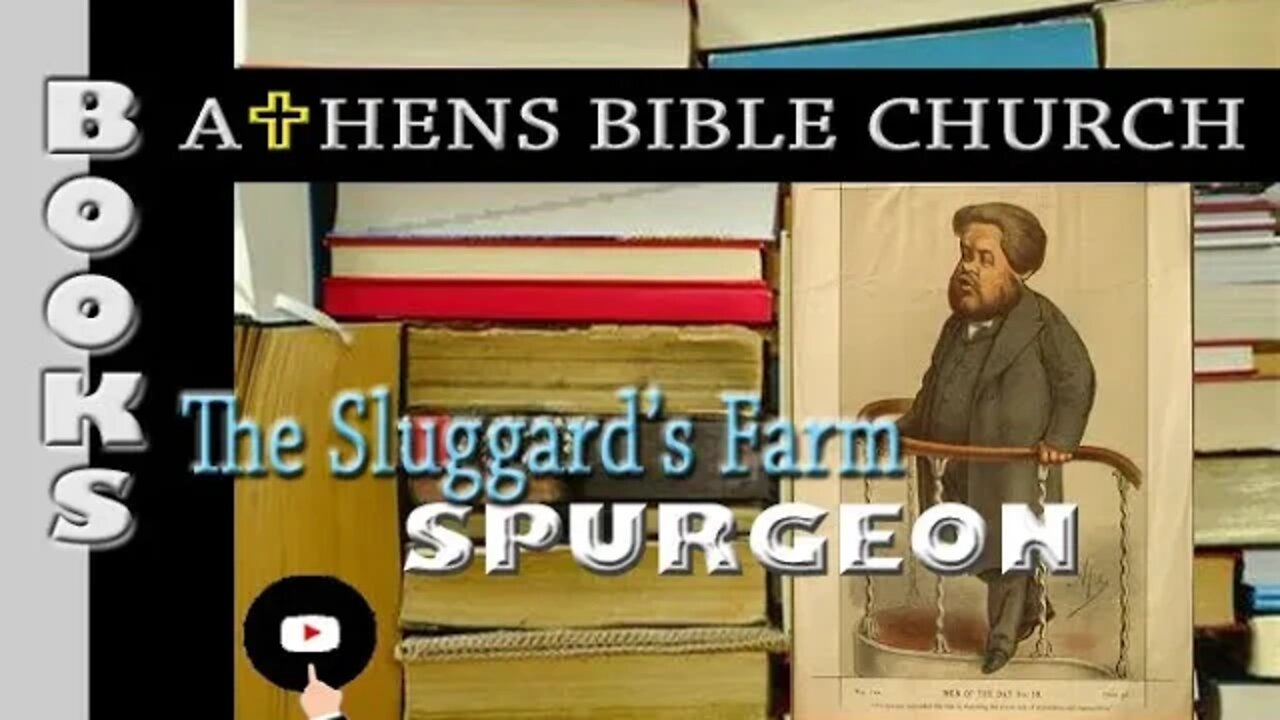Premium Only Content

Talks To Farmers | The Sluggard's Farm | Charles H. Spurgeon | Classic Christian Audiobooks
TALKS TO FARMERS - THE SLUGGARD'S FARM
Charles Haddon Spurgeon
Public Domain Recording Edited by Athens Bible Church
Thanks to Reader Lauren Randall
PROVERBS 24:30-32
"I went by the field of the slothful, and by the vineyard of the man void of understanding; And, lo, it was all grown over with thorns, and nettles had covered the face thereof, and the stone wall thereof was broken down. Then I saw, and considered it well: I looked upon it, and received instruction."
No doubt Solomon was sometimes glad to lay aside the robes of state, escape from the forms of court, and go through the country unknown. On one occasion, when he was doing so, he looked over the broken wall of a little estate which belonged to a farmer of his country. This estate consisted of a piece of ploughed land and a vineyard. One glance showed him that it was owned by a sluggard, who neglected it, for the weeds had grown right plentifully and covered all the face of the ground. From this Solomon gathered instruction. Men generally learn wisdom if they have wisdom. The artist's eye sees the beauty of the landscape because he has beauty in his mind. "To him that hath shall be given," and he shall have abundance, for he shall reap a harvest even from the field that is covered with thorns and nettles. There is a great difference between one man and another in the use of the mind's eye. I have a book entitled, "The Harvest of a Quiet Eye," and a good book it is: the harvest of a quiet eye can be gathered from a sluggard's land as well as from a well-managed farm. When we were boys we were taught a little poem, called, "Eyes and no Eyes," and there was much of truth in it, for some people have eyes and see not, which is much the same as having no eyes; while others have quick eyes for spying out instruction. Some look only at the surface, while others see not only the outside shell but the living kernel of truth which is hidden in all outward things. - C.H. Spurgeon
-
 LIVE
LIVE
Bitcoin Magazine
5 hours agoLIVE: MICHAEL SAYLOR'S $100K NYE BITCOIN PARTY
1,930 watching -
 5:06:15
5:06:15
AirCondaTv Gaming
11 hours ago $13.39 earnedOnce Human - New Year. New Meta. Happy New Year!
66.3K13 -
 1:00:37
1:00:37
Bright Insight
10 days agoOlmec Heads are Evidence of Lost Ancient Advanced Civilization
102K227 -
 13:43
13:43
Cooking with Gruel
2 days agoCreamy Saffron Risotto
81.8K20 -
 18:38
18:38
DeVory Darkins
1 day ago $19.00 earnedTrump Makes HUGE Announcement that may spark GOP Battle
59.9K74 -
 2:13:05
2:13:05
The Nerd Realm
10 hours ago $3.22 earnedNew Years Eve! Fortnite Hunters w/ YOU! Creator Code: NERDREALM
49.9K3 -
 LIVE
LIVE
FusedAegisTV
1 day agoNYE Eve! - 2025 Incoming 🎉 - 12hr Variety Stream!
1,425 watching -
 1:18:52
1:18:52
Awaken With JP
13 hours agoSomehow The World DIDN’T End This Year! - LIES Ep 72
136K73 -
 1:19:34
1:19:34
Michael Franzese
11 hours agoWhat 2024 Taught Us About the Future?
113K30 -
 1:48:09
1:48:09
The Quartering
11 hours agoBird Flu PANIC, Sam Hyde DESTROYS Elon Musk & Patrick Bet David & Woke Witcher?
121K71